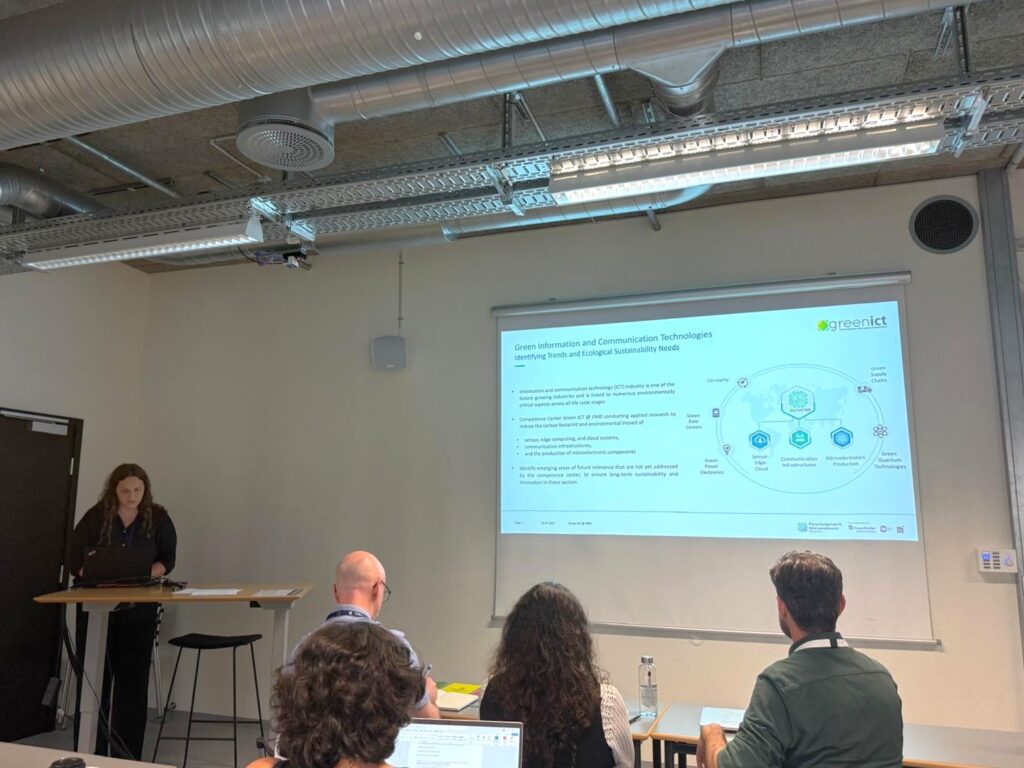Authors:: Lotta Adu, Tugana Aslan, Katerina Gorlova, Dr. Manuel Thesen
Office of the Research Fab Microelectronics Germany
In July 2025, the Green ICT @ FMD competence center published a research arcticle on trends and requirements for the environmental sustainability of ICT in Germany and Europe as part of the 6th Product Lifetimes and the Environment Conference (PLATE 2025) in Aalborg, Denmark. The article identifies five key areas in microelectronics that are important for environmental sustainability and the economic future in Germany and Europe: (i) circular economy in microelectronics, (ii) green data centers, (iii) green power electronics, (iv) green quantum technologies, and (v) green procurement and supply chains. These areas were identified through a systematic approach, including surveys, expert interviews, and market analyses, and evaluated based on criteria such as geographical relevance, temporal relevance, and feasibility.

© Fraunhofer Mikroelektronik
The current focus of the competence center is on conducting applied research to reduce the CO2-footprint in order to minimize the environmental impact in the following three ICT technology areas: sensor-edge-cloud systems, communication infrastructures, and the production of microelectronic components. However, many other technologies fall under the umbrella term ICT, and there are numerous related topics of future relevance whose ecological potential in terms of CO2-savings is not yet known. In order to provide the economy and, above all, SMEs in these sectors in Germany with concrete recommendations for action towards greater ecological sustainability, another important task of the competence center is to identify these related areas of interest beyond the three already mentioned, thereby ensuring broader ecological sustainability and associated innovations in these sectors.
The Green ICT @ FMD competence center has therefore identified five emerging and essential areas in the context of microelectronics and assessed their feasibility in terms of various criteria, such as industrial demand and leverage effect in Germany and Europe, ecological urgency, and technological maturity. The topics considered are (i) recycling, (ii) green data centers, (iii) green power electronics, (iv) green quantum computing, and (v) green supply chains. The circular economy in microelectronics deals with resource efficiency and extending the service life of products, while green data centers aim to optimize hardware, software, and infrastructure in order to reduce the environmental impact of the steadily increasing demand for additional computing capacity, particularly as a result of the growing use of AI. Green power electronics are designed to improve energy efficiency in critical sectors such as electromobility and data centers. Green quantum technologies explore the material and resource intensity of innovative technologies, while green supply chains focus on reducing CO2emissions along value chains. The results and an in-depth look at the methodological aspects were presented as a scientific paper at the PLATE conference 2025. The full article with all details can be found here.
